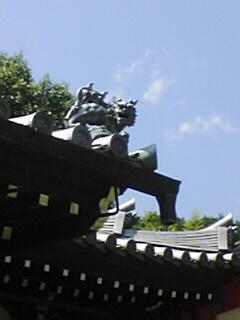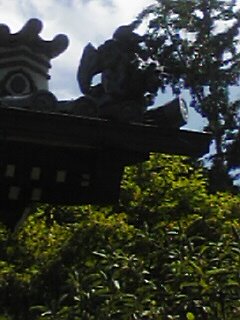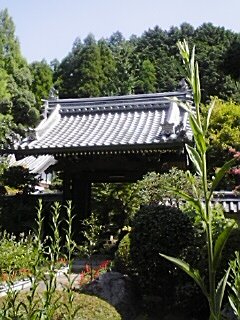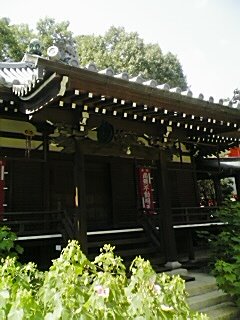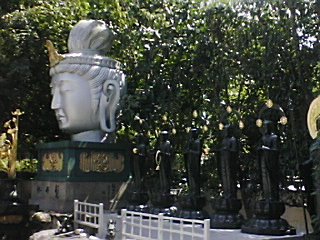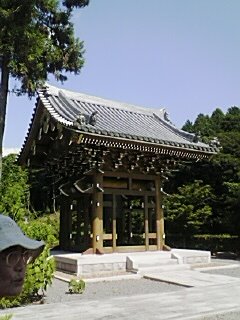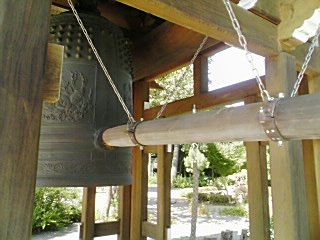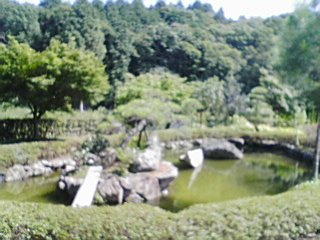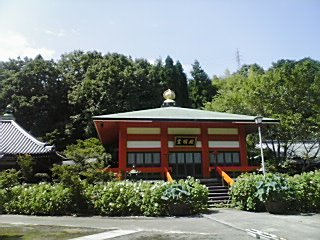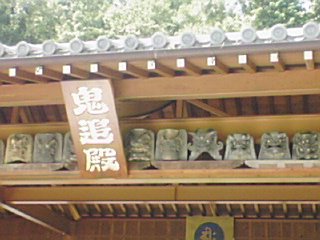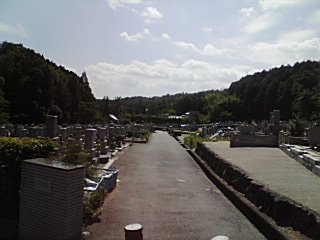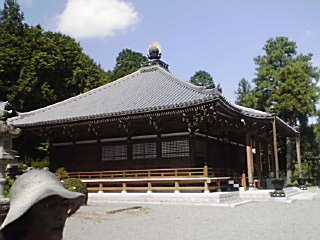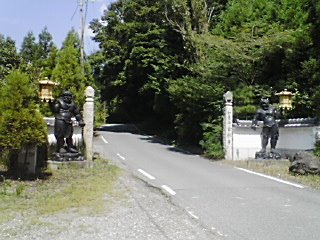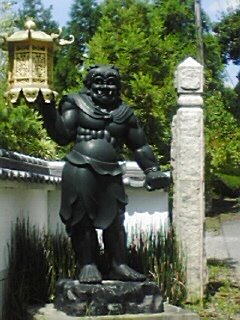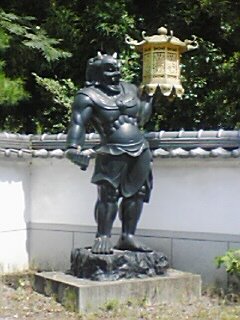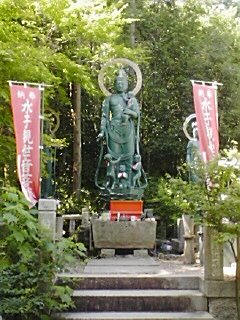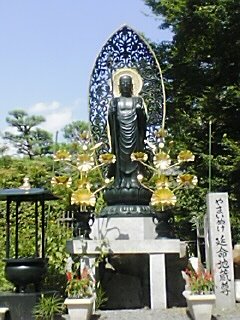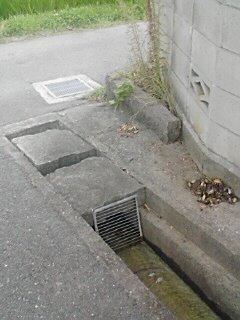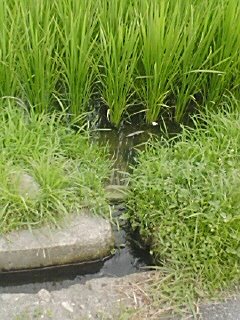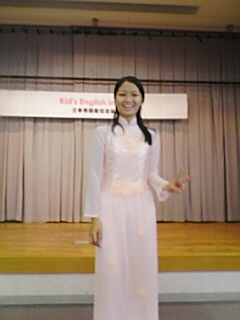My "Kid's English" summer camp experience apparently caught the eye of a journalist, who was sitting off to the side of the room (unbeknowst to me) during our play on Sunday. Apparently, s/he was dropping by events around the downtown area of Miki, hoping for something. When they stopped at my Summer Camp, apparently, an English teacher holding a giant radish cut-out while a ton of tiny kids with better pronunciation than most adults played tug-O' war, doing a play constructed in a few hours, really impressed him.
A little history to make it clearer why our event was weird:
Sensei (teachers) are highly respected here. They do more to raise children than parents do. They are expected to. It is not like America where the teachers feel like their raising someone else's kids while the parents seem to lay all the responsibilities where they shouldn't belong. Here, that IS where they belong, and are expected to belong. Sensei are very highly regarded because of their talent and ability, and the knowledge that they are the one's that have led Japan in the "next" age in almost every sense, throughout the entirity of recorded history. They are seen for being roughly as important as they are, (unlike most of the US). Therefore, almost any teacher merits about the level of respect as a priniciple or super intendent, and any respected teacher is VERY well respected. You are sensei in school, out of it, in your sleep, during vacation, everywhere, every time. Even your graduates from Jr. High School will be "your kids" until they are under the care of the HS. their action are your responsibility. However, because of this level of prestige, people are expected to ACT their level. Usually better dressed, well-spoken, very law abiding, and a role model EVERYWHERE you go. This also means that most senseis seem a bit stuffy. They do not play along in their kids plays, they don't play sports with the kids, they don't get down and do dirty things (except mopping the classroom floor, that is a responsibility given by the school as part of taking care of your own classroom).
What I did may have been beyond belief: I dropped down to the level of the children to do English with them, they DID English, well, better than most of their older, better-studied peers, had a memorable experience, had FUN *gasp, in school?* and all seemed to come away improved from little effort and lots of enjoyment. "This is definitely not part of Japanese teaching style," the onlookers like the reporter I never saw might have thought. A sensei does not make funny faces, hide behind a desk with a radish cut out, groan, moan, or laugh like just like an evil Japanese movie villain (and neither would a radish in a play, but they might in other circles of the culture!)
This mix of creativity, student work, and general WILLINGNESS to work at the base student level proved excellent. Sitting down, being quiet, listening, not asking question, not having opinions...these were not in our camp. Memorizing was, but not much, and it was all contextualized obviously through the actions of the play. We still had Japanese sensei as LEADERS there, of course like most, leading the camp but not participating in the plays, or "sinking to the level of a student" but ALL of us internationals had no problem with it. I've already gotten a postcard from one young girl basically stating she wants a to be taught like our camps' way instead of a normal sensei! Craziness.
I went into work today, to get my Green Card taken care of and to ensure that I am 100% medically covered for everything (under $16/month under the japanese system!) and one of the teachers ran up and handed me the post card I mentioned. I read it, seeing that in addition to the reassuring information about me being a pleasant/effective teacher, it also made mention of my picture being in today's "Kobe Shinbun."
Just then, one of the workers said "I saw you in The Paper."
"Paper?" I said, still translating from having just seen
Shinbun at the same moment on the page. Ah,
Shinbun is
newspaper, duh! I thought. Then things come together quickly.
"The Paper" is the same thing as the Kobe Shinbun. Kobe Shinbun is that really big paper, that puts the others in the area all to shame. It's like the Seattle Times or higher yet. This is THE respected Japanese paper in Hyogo, maybe even the highest in all of Kansai. My picture. In that. For Kid's English. There were a thousand photos...tons of participants.
They picked one with me in it to capture the spirit of it?
The office-worker lead me to the library and the paper and told me she'll get me a translation and colour copies of it for me.
nice. She told me that her cousin works for the paper,
very proudly, as anyone SHOULD in her position! She basically stated that if I attend another camp (since this last one was a success and was story-worthy, even worthy for a picture-spot), that it would be very likely that the next journalist seen event (now slightly more likely to be in Miki after this event) would achieve a futher-up spot and maybe an interview of me or something, since they might be inclined from the commotion we seemed to have caused anyways.
So far, I am liking being a radical western teacher in Japan, as you could all probably tell. I've been staying within most bounds of the culture, but pushing towards the new and more enjoyable learning methods that have been proven to be effective as they are fun. I've not gotten into trouble once over them yet, though I imagine that if I do so in the wrong setting it won't work so well. As it stands, I'm making much more progress that I would have ever dreamed. People are hearing about interactive teaching now, all over Japan. Reading it in the newspaper: "foreign Sensei go where no Japanese teacher dare go." In addition the the slow pushing by many fine educators that have studied abroad or have an understanding for learning, headway is being made. However, it's people like me, the radicals, that can make people see what these things can be. I don't have a strict many-years old system in place on me, and I have more freedom than the local teachers, since I do not have tradition to force me to act certain ways, or teach in certain styles that even most of these teachers KNOW aren't effective. I'm not stuck. And I intend to keep using that. I'm glad that the camp was so open to us few foreigners and my friends. Of course...none of these overlord Japanese sensei, even seeing us go up there and give it our all for the kids was not enough to make even one make a moment's stage appearance. Not even Kyoko, one of the brightest and give-it-her-all teachers I've met anywhere. If enough students see this though, and our methods are effective, funny, radical, and MEMORABLE, that those few who become teachers will remember, and maybe even follow our trend.
Confucius-style teaching was good for its time and subject, but in the age of science, math, culture, and foreign languages, sheer memorization followed by giant paper tests will not keep Japan in a leading position in the world. Korea and others are replicating the Japanese system and forcing their children into even busier time-filling schools that are hated and which produce data-filled, uncreative workers that will work to death to pass the Japanese. The Japanese feel they' don't have creativity in schools, or expression, and even the Board of Education has complained that the schools need to change in this area. However, the flexibility is not there in the generation in place. I just hope that I can reach out and inspire even
one child who is willing to say "Enough of this! I'm going to teach my kids the most effective ways I can. I'm going to be creative like Adam-Sensei. I'm going to work WITH my kids when I'm sensei, and I'm going to have fun doing it too! I'm going to be different. I'm a part of the new Japan, and we are going to be the best yet."
That would make a whole year worth it for me. I am honoured by the appearance in the paper, and happy that I made an impact, but when it comes down to it, I hope they come away feeling that things don't have to be "Examination Hell" as many of the Japanese have titled much of their schoolives. I'm glad our teaching is getting publicity, but what I really want is for these kids to grow up liking learning, feeling good about their lives as children, and being able spend some time just being
people instead of memorizing machines. I'd like for all of Japan to change, but nothing happens too fast here, unfortunately. Respect goes to elders, and elders stick to their guns, as it is. I think we should respect our elders. But when they are soley resposible for the #1 country for education falling behind in some of the most imortant fields, they sometimes need to learn to follow new developments in Education, or take responsibility instead of going by the same methods they grew up with and were taught only, even when they very well know there are better ways out there. I knew when I came to Japan that I couldn't reform the education system, but already I am finding I have more power to do so than I would have thought. Thank you Mom and Dad for showing me what teachers
can be like.


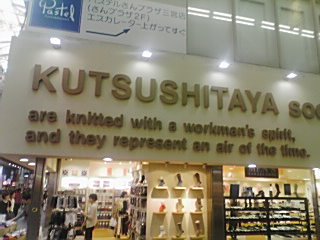

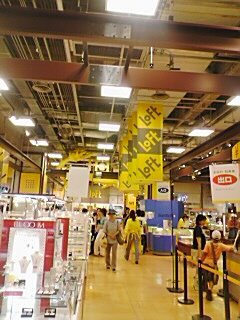

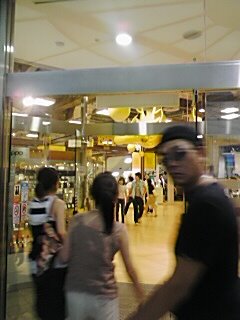
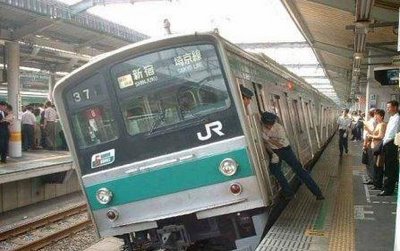 Don't you just hate it when he does that?
Don't you just hate it when he does that?
